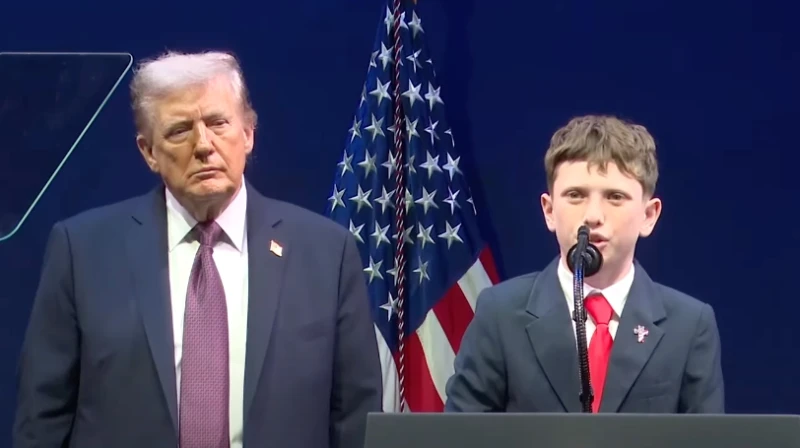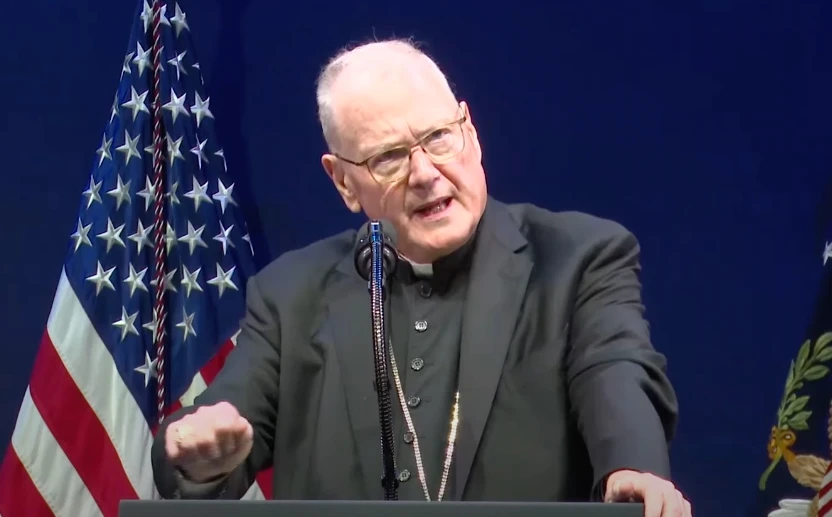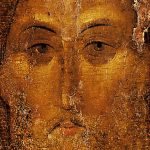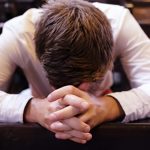
Washington D.C., Sep 9, 2025 / 18:25 pm (CNA).
More than half a dozen American public school students testified about anti-Christian and other faith-based forms of discrimination in an education-focused hearing conducted by President Donald Trump’s Religious Liberty Commission.
The Sept. 8 hearing was the commission’s second meeting since the president created it earlier this year. The commission’s inaugural meeting in June focused on broader threats to religious liberty stemming from federal, state, and local government actors and questions about the proper role of faith in public life.
The archbishop of New York, Cardinal Timothy Dolan, a member of the commission, made his first appearance at Monday’s hearing after missing the first hearing due to his train being canceled. He emphasized the importance of the commission’s work on education and broader concerns.
Dolan, who took part in this year’s conclave to elect Pope Leo XIV, discussed cardinals from around the world approaching him in pre-conclave meetings “to thank us for our strong defense of religious liberty” in the United States.
“They said, well, because you in the United States serve as a beacon for the rest of us,” he said.

“This gives us an added sense of responsibility,” Dolan continued. “We’re not doing this in a self-serving way. We’re doing this in an extraordinarily solicitous and benevolent way to help others because they look to us for the protection of religious liberty. They look to us as a nation that’s extraordinarily democratic, but yet admits that we couldn’t be that unless we were ‘one nation under God.’”
Other members of the commission include Diocese of Winona-Rochester, Minnesota, Bishop Robert Barron, Pastor Paula White, evangelist Franklin Graham, psychologist and TV show host Phil McGraw, and neurosurgeon Ben Carson.
Faith-based restrictions on students
The commissioners heard from various public school students and former students about discriminatory actions they faced when trying to publicly proclaim their faith in a public school setting.
Hannah Allen testified about a 2019 instance when she was in middle school and the principal prevented students from praying for a classmate who had been injured in a car accident. The school’s principal told them they could only pray if the prayer was hidden from other students.
“He violated our right to freely exercise our religion,” Allen said.
After obtaining legal counsel from the First Liberty Institute, the school backed down and told the students they could pray in public view. Allen said “what happened at my school wasn’t right and I know that it is going on in other schools as well.”
Justin Aguilar, a recent high school graduate, testified that when he submitted his valedictorian speech that referenced Jesus Christ to school officials, “they just simply crossed his name out” and instructed him to resubmit the speech without any religious references.
He obtained legal support from Liberty Counsel to convey his religious rights to the school. He said: “I resubmitted my speech with everything I wanted to say” and school officials allowed him to reference Christ.
Aguilar said the situation made him nervous about referencing Christ in his speech but that the crowd cheered when he brought up his faith, and “I felt this huge joy and relief.” He said that out of everything said at the graduation, “nothing had as big of a response as the name of Jesus.”
Lydia Booth discussed a prolonged incident after her Mississippi elementary school restarted in-person classes after the COVID-19 pandemic. School officials forced the 9-year-old to remove a face mask that had the words “Jesus Loves Me” written on it.
“During that time, everything felt uncertain, but those three simple words reminded me I wasn’t alone,” Booth told the commission.
Her family obtained legal support from Alliance Defending Freedom and fought a two-year legal battle, which ended in a settlement from the school district in which it agreed to let her wear the mask.
“You’re never too young for your voice to matter,” Booth told the commission. “If I had stayed silent, nothing would have changed, but because we spoke up, now other students can wear messages of faith and love without the fear of being silenced.”
An imposition of values
Several speakers also expressed concerns about public schools trying to impose values on children that conflict with the beliefs of parents, such as the recent U.S. Supreme Court case over parental opt-outs for course material that promotes gender ideology.
Sameerah Munshi, who serves on an advisory board to the commission, discussed Montgomery County Public School’s refusal to let parents opt out of such material.
“Many parents, including Muslim, Christian, and Jewish parents, and students were concerned, to say the least,” said Munshi, who is an activist for the rights of Muslims.
“What happened in Montgomery County was not about Muslims and other people of faith trying to impose their values on others,” she continued. “It was about refusing to have others’ values imposed on us. It was about the right to dissent without being demonized.”
The Supreme Court in June ordered the school board to provide parents with an opt-out.
Ethics and Public Policy Center President Ryan Anderson, a member of the commission who is Catholic, noted that “frequently religious liberty violations are a result of unjust laws in the first place,” and argued that the imposition of gender ideology is inherently unjust.
“We can’t just … opt ourselves out of this,” he said. “We also need to directly combat it.”
Addressing the commission for the first time on Monday, Trump criticized the failings of the public education system in this area and alleged that “in many schools today, students are … indoctrinated with anti-religious propaganda” and punished for practicing their religious faith publicly.
The president announced at the hearing that the U.S. Department of Education would develop new guidance to protect the right to pray in public schools. He also launched the “America Prays” initiative, encouraging Americans to pray for the nation and its people ahead of the 250th anniversary of the Declaration of Independence.
If you value the news and views Catholic World Report provides, please consider donating to support our efforts. Your contribution will help us continue to make CWR available to all readers worldwide for free, without a subscription. Thank you for your generosity!
Click here for more information on donating to CWR. Click here to sign up for our newsletter.
















